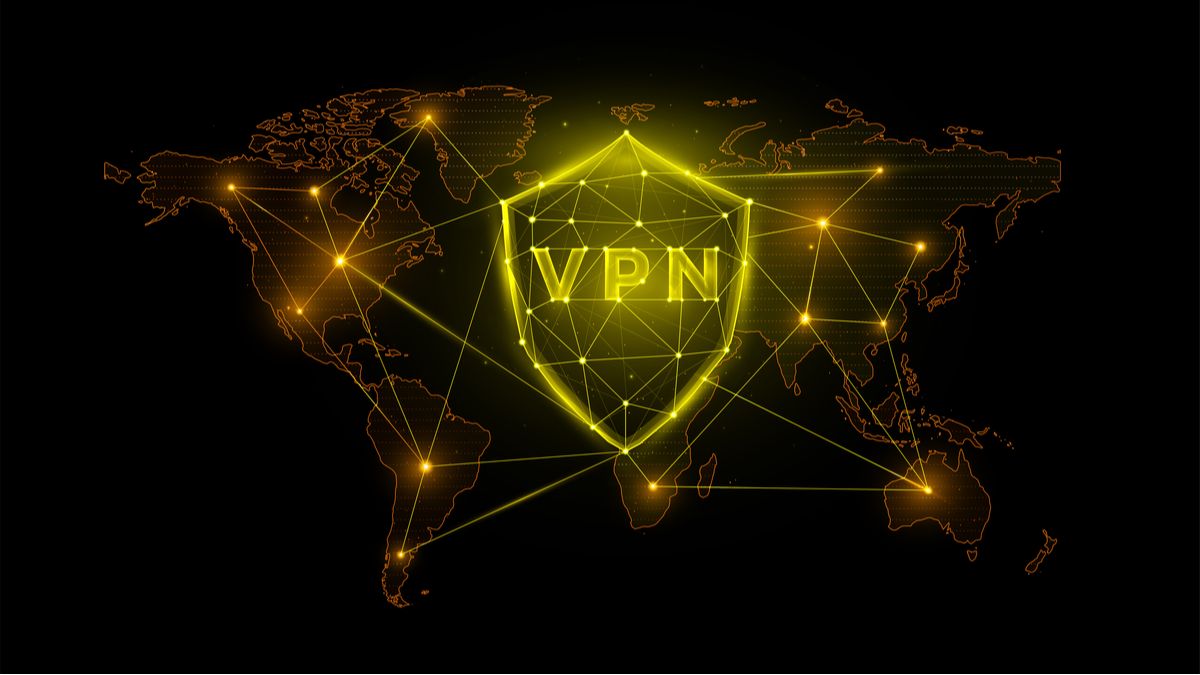An interesting feature that's popping up more and more in VPN advertisements is one called double VPN or multi-hop VPN. Once offered by just a handful of VPN services, it seems other VPNs are now catching up to the marketing potential of these extra-secure connections. Does the reality live up to the expectation, though?
What Is a Double VPN?
A double VPN connection is one where an internet connection is run through two VPN servers operated by the same VPN service, one after the other. It's a feature offered by a handful of VPNs---including some of our best VPN picks like NordVPN and ProtonVPN---and promises extra security for those who need it.
Note that a double VPN is not the same as running two VPNs at the same time: in that case, you have to configure two different VPN services to play nice together. Double VPN or multi-hop connections have fewer configuration issues as they're a pre-packaged feature offered by a VPN service.
To explain how double VPN works, let's quickly go over the basics: normally, when you connect to the internet, you connect from your home to your internet service provider's server and then to the website you want to visit. A VPN changes this and reroutes your connection, so after going to your ISP it goes to a server operated by the VPN before going to the website.
The reason for doing this is twofold: your IP address is changed to that of the VPN, handy for circumventing regional blocks as well as censorship, and the connection between the ISP and the VPN server is encrypted in a so-called tunnel, meaning nobody knows what you're up to---assuming you've used incognito mode to sign out of all your online accounts.
A double VPN adds a second VPN server into the chain, so you go from the ISP server to a VPN server, then another VPN server run by the same company, and then to the website of your choice. This is called a cascade configuration, where one connection "falls" into another one. Essentially, for every new VPN connection, you're adding a new encryption tunnel.
However, there's a big downside to using double VPN: your speed is going to take a massive hit. A single connection already hurts your connection speed badly enough, and adding a second hop will reduce it even further. We've seen double VPN connections that barely got 10 percent of the original connection's speed.
Which VPNs Offer Double VPN?
As of 2022, double VPN connections were relatively rare until recently, when suddenly more and more VPN services started offering them. A quick look around the internet shows the following VPN services offer some kind of double-hop functionality at time of writing:
Please note that we've arranged them alphabetically to avoid turning this into some kind of "best double VPN" popularity contest.
Why Use a Double VPN?
The benefits of using a double VPN depend on who you ask. Most VPN providers will tell you that running two tunnels means you're double secure. For example, Surfshark claims on its website that "if anyone wants to get to you, they have to breach the VPN server you're connecting to. That's twice as hard to do with two VPN servers."
ProtonVPN takes a slightly different tack: in its setup, called Secure Core, one server is in a country like Switzerland or Sweden with strong data protection laws and another somewhere else. "If the other VPN server is somehow compromised," ProtonVPN promises, "your online traffic and IP address remain safe."
Dubious Claims
According to these claims, double VPNs sound like a clear upgrade for security. Of course, this raises the obvious---if slightly awkward---question of why not every VPN service offers them.
This is because these claims are, at best, an overstatement. For example, Surfshark's claim that it's harder to breach two servers than it is one is true---though we're not sure if it'd be twice as hard. Even if true, to crack the encryption on one server or connection could take a billion years if using a brute force attack, so turning that to two billion seems excessive.
ProtonVPN's claim seems to make more sense at first. After all, if a server is compromised, your data could be there for all to see. This means going through a second server in a country with more strict privacy laws makes sense. However, with the right warrant, authorities could still request your data and the company will cooperate.
While ProtonVPN can't hand over all your information---its own encryption protocols prevent that---some information will still leak out, enough at least that it might not be worth the huge hit to performance your internet connection takes for going through two VPN tunnels.
Digging a Deeper Hole
These two aren't even the most egregious claims: Hide.me goes even a step further: on top of all other benefits, it can even improve your connection speed in certain situations. We wonder which situations these are, as we've never in all our days of VPN speed testing seen a VPN improve a network's speed.
In the same vein, NordVPN backs up its assertion of "complete privacy" when using double VPN with the following statement: "nobody, not even your ISP can see your final destination on the web. They can only know that you are using a VPN service." As we explain in this article, that's what a VPN does, period---no matter if you hop once, twice, or eight times. To claim only a double VPN provides this is simply untrue.
While there is certainly a case, albeit a small one, to be made for double VPN connections, most of the claims you'll see on the websites of VPN services are there to part you from your money. As the struggle for VPN market share heats up, though, we can expect more wild claims like the ones we've outlined above; make sure to take them with a grain of salt.

